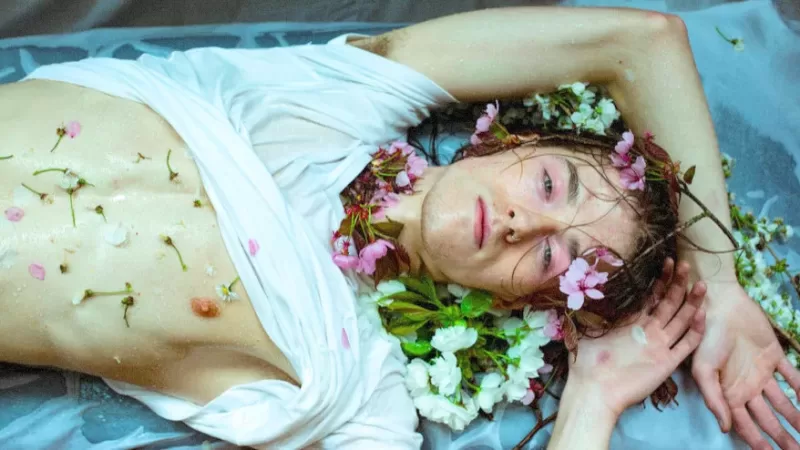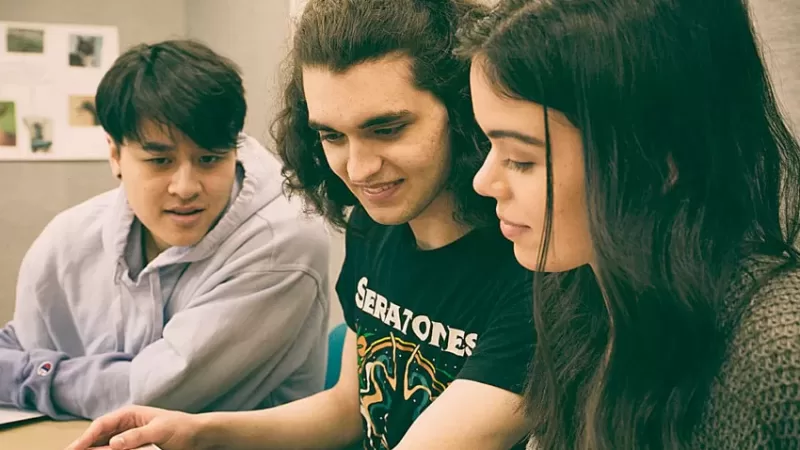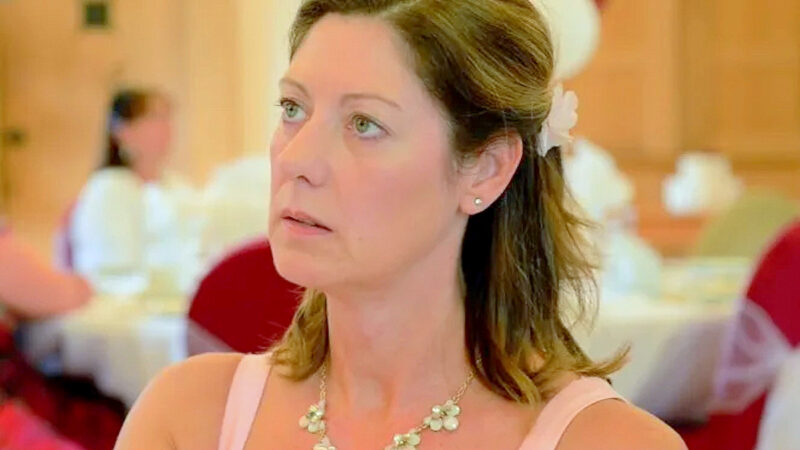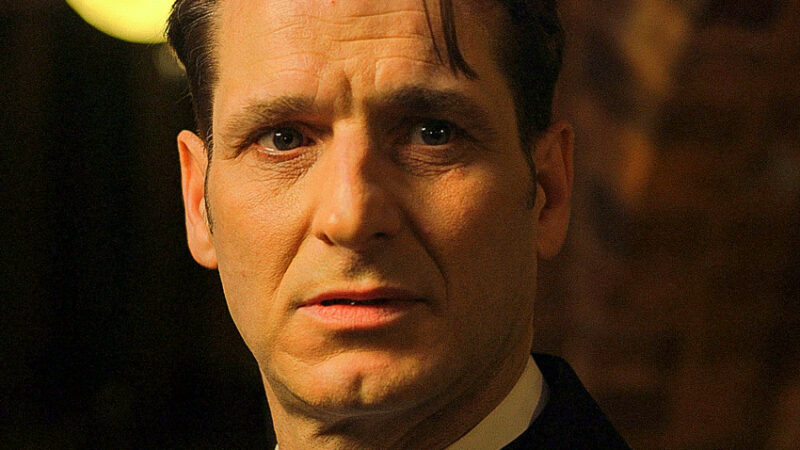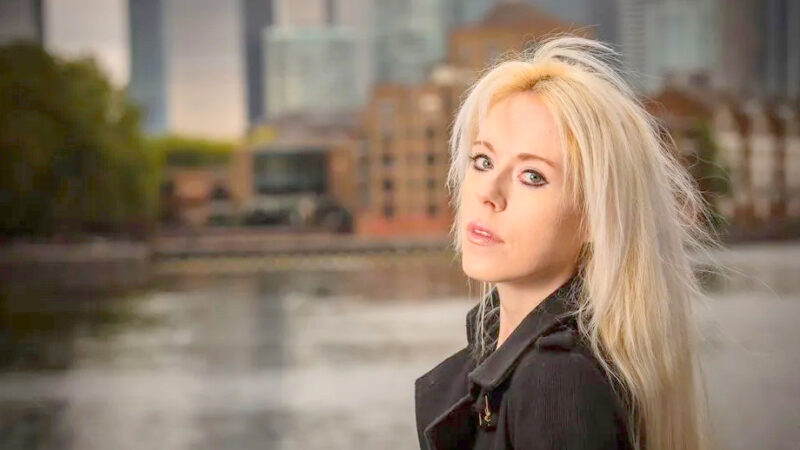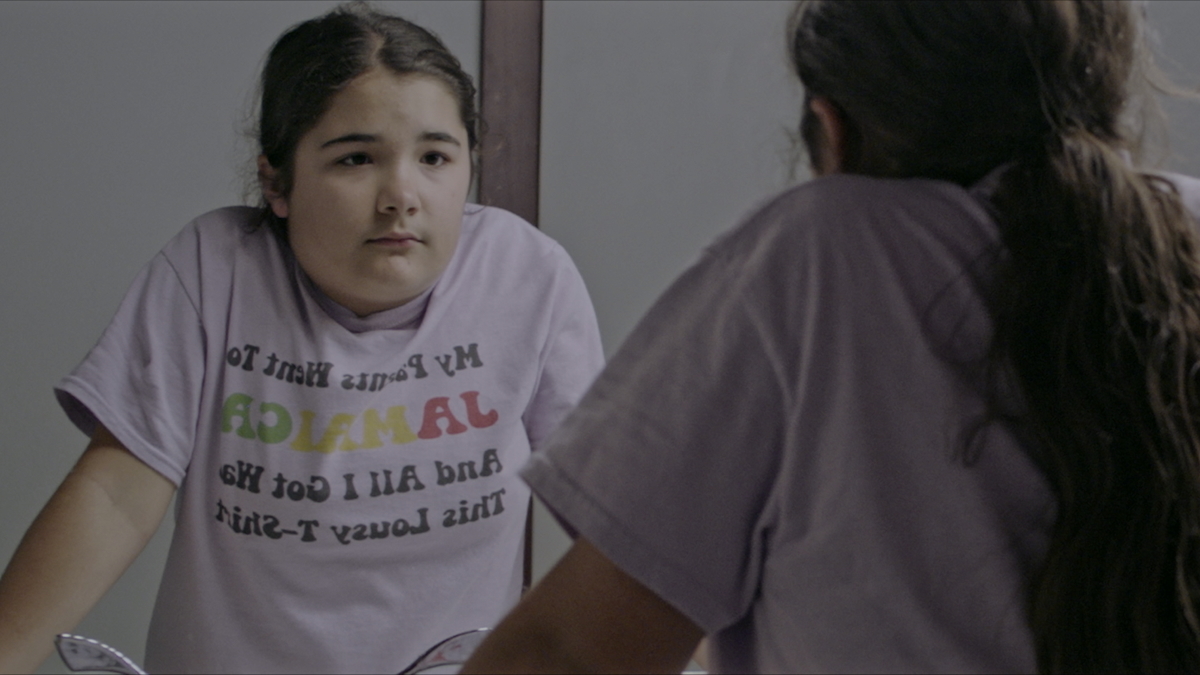
Award-winning, indie filmmaker Melissa Rue shows the power of imagination in her acclaimed dramatic short film, Esperanza’s Turn.
This spirited tale about a young girl overcoming a bully hit the festival circuit with a bang, earning Best Director and a nom for Best Oregon Film at the Oregon Short Film Festival, Rising Star Award for Dramatic Short Film at the Colorado Int’l Activism Film Festival, and Silver Mention-Best Social Issues Film at the Phoenix Monthly Film Festival.
A socially conscious filmmaker, Melissa has been gaining attention across the country for the last several years. Her previous films have garnered Best Dramatic Film at The Oregon Independent Film Festival and Audience Award Winner at the 5th Avenue Cinema’s Visuals Festival.
Melissa also co-produces Connectivity Project, a documentary web series about people and programs making a positive impact on our society, and she associate produces the scripted comedy web series, One Bird at a Time. Always working, Melissa is currently in post-production on the upcoming documentary feature film Live Out Loud, as well as developing a dramatic series.
The official trailer for Esperanza’s Turn written and directed by Mellisa Rue starring Niku Edlund-Farsad
indieactivity: Briefly explain your new short film “Esperanza’s Turn?”
Melissa Rue (MR): “Esperanza’s Turn” is a short drama about a 12-year-old farmworker who taps into her imagination to confront a racist bully at school.
Where did you find the inspiration for it and how did that develop into the script?
Melissa Rue (MR): I wrote Esperanza’s Turn after attending a weekend Flamenco retreat on the Oregon Coast. The teacher, Laura Onizuka, told me some incredible stories about women who were empowered and changed their lives for the better after learning Flamenco. I was intrigued by how powerful this form of dance can be. At the time, I’d been researching child migrant farmworkers because I wanted to write about them, and I had this little girl in my imagination already. She said, “I’d like to learn Flamenco!”
Fortunately, Laura Onizuka was willing to take a chance and work with me. I’m also lucky to have an incredible screenwriting group. I worked on drafts with their feedback over several months. When I got the script to a point where they were eager to see it produced, I knew it was time to go into pre-production.
The film weaves together some humor and fantasy to deal with a tough topic; tell us about that?
Melissa Rue (MR): I wanted to make a film that would both entertain and raise awareness about the terrible situation child immigrant farmworkers face in the U.S. I’ve thought a lot about how to best reach audiences beyond those who already see the world similarly to me, and I think making the story playful has helped do that. Many of the kids working in our fields are exposed to toxic chemicals, dangerous equipment, unhealthy living conditions, and suffer from malnutrition. How ironic for the people feeding us to be unable to feed themselves. And tragically, sexual predators also prey upon many women and children.
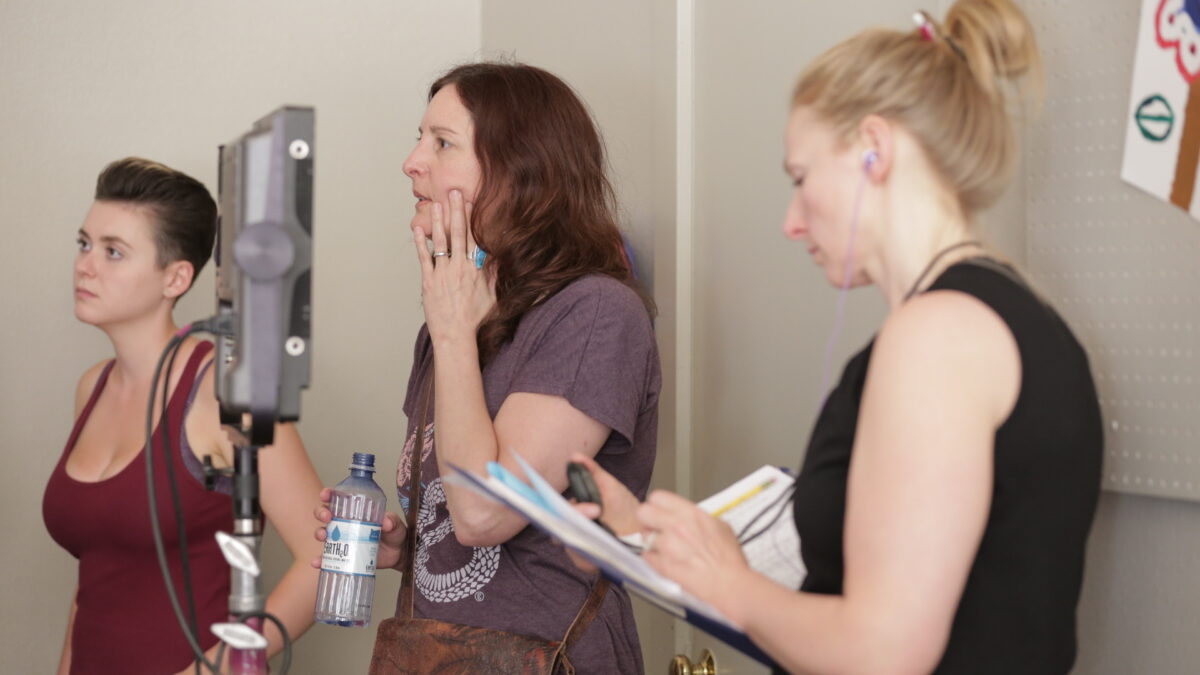
This happens in border crossings as well as in the fields. Fearing deportation, they have nowhere to turn for help. I grew up in a farming community in Kentucky. I’m familiar with the argument that hard work is good for kids, but what child can go to work in the field 8 hours a day, 60 hours a week, and have the energy and focus left to learn anything in school? That’s what some states allow. Others have virtually no restrictions on child migrant labor. I think we owe these children the chance to get an education and improve their lives. Our country just uses them. If we want to live ethically, we have to face the serious inequities our economy is built upon and make changes.
What were the first steps you took to make it happen?
Melissa Rue (MR): After working on the script with my writing group, I met with the potential crew and started putting my team together. I hadn’t made a film in three years, and I was out of the indie film loop in Portland due to chronic health problems, so it was not easy, especially since I like to get to know the key players on my set before we go into production. In some cases that was possible, but towards the end of pre-production we lost a few people to higher-paying gigs and personal problems and ended up adding some new faces. I was delighted to find an amazing woman sound recordist from Seattle, Tara Munoz.
How was it working with so many children in prominent roles? Were there any rehearsals or how did you know they could give you the performances you needed?
Melissa Rue (MR): Believe it or not, I found the kids right around the corner from my house at Robert Gray Middle School in Portland. None of them had been in a film before. Christine Autrand Mitchell (who wore many hats) and I auditioned all of the kids in the drama program. That place was like a mini Fame. I mean, every time I walked into the school, the kids were dancing around the halls and singing at the top of their lungs. Niku was a total standout. Her confidence was stunning for a person her age, she asked excellent questions, and she demonstrated the best potential for adapting from stage acting to screen.
Niku studied dance with Laura Onizuka (Flamenco) and Michael Galen (Hip Hop) over three months to prepare for the part. And yes, I rehearsed a few times with Niku and Max, who plays Lance, her tormentor at school. They are both so mature for their age, very smart, kind, and a joy to work with. Of course, I owe their parents a huge thank you for raising such amazing kids and trusting me to put them in a film. Our A.D., also Christine, did an excellent job of preparing the additional students to behave professionally on set, and she got them all into character. Some of the kids even helped create artwork for the set design.
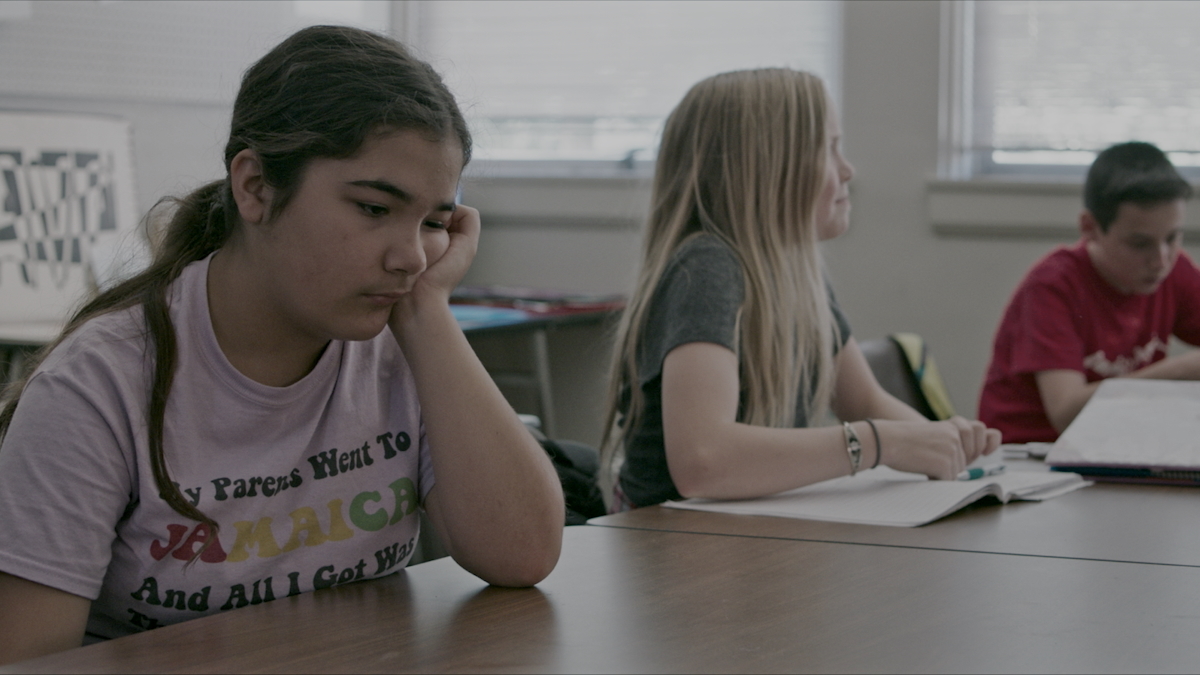
You brought in several key people for post-production; what can you share about that process?
Melissa Rue (MR): I loved Heidi Zimmerman’s editing on Alive & Kicking, so I knew she could cut the dance sequences well. I gave her notes on cuts and every so often we worked together. Heidi deserves a lot of credit for this film’s success. She is a fantastic editor. Portland composer Eric Stern wrote the music for the first dream sequence. After just one meeting, he understood exactly what I wanted and knocked it out in no time. For the second dream sequence, I needed a song that had the spirit of “Uptown Funk” without the price tag. I reached out to my old buddies from Five Fingers of Funk. The hard part was the music for the third dream sequence and final scene. First, we recorded “Esperanza’s Theme” with a group in Portland, but when I started working with Heidi, we decided it didn’t create the right mood.
Luckily, right about that time, I went to New Orleans to score my first feature documentary with The Gallop Quartet. My music producer, Don Paul, showed “Esperanza’s Turn” to two of the group’s members, Hamid Drake and Alex de Grassi, and asked them if they could score it as well. Alex is a Grammy Award-nominated musician, but he is not a Flamenco guitarist. He told me right away that he couldn’t play like Paco de Lucia, and we had a good laugh. Who can? I assured him that didn’t matter. The music comes from Esperanza’s imagination. Once we let go of trying to measure up to authentic Flamenco and Hamid started experimenting with different drum sounds, it worked like magic. My husband Dave is a drummer too, so he helped translate for me in the studio since I don’t speak musician.
Finally, Kelley Baker came on board as sound designer. Kelley brought Marc Rose on to do re-recording and mastering. Working in the studio with them is such a treat, and I’m delighted to report that they’ve won two awards for their work on our film!
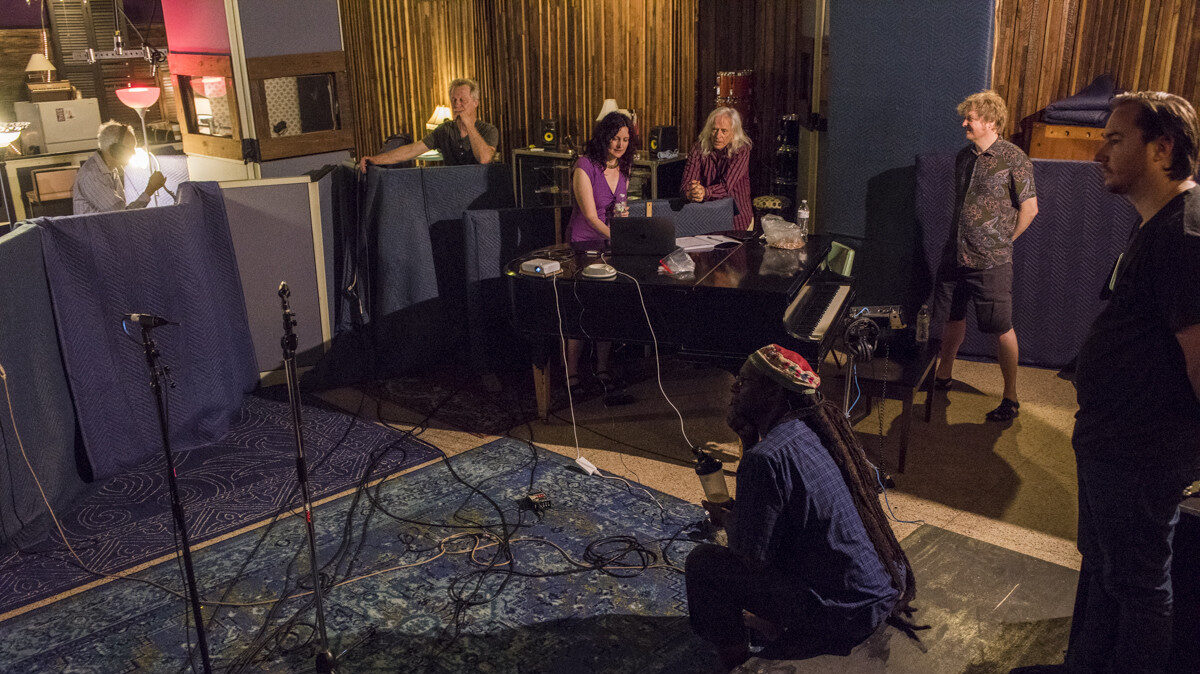
Anything you wish you could “do-over” on the project?
MR: Originally, I planned to shoot with a D.P. from another country. We’ve worked together before, so we planned on making the shot list and finalizing our shooting style when he arrived. Unfortunately, he injured himself and was unable to work. So, I had to replace our D.P. a week before the shoot. Padraic O’Meara saved the film by taking a risk and jumping in at the last minute. I wish he and I had been able to start planning sooner. We had to improvise a lot on set. Padraic is a talented professional, so we made it work. Our original school location also fell through a few weeks before the shoot. I learned never to trust that a location is set unless you have a contract.
How did you balance creativity and financial restrictions?
MR: Many of my cast and crew were willing to work at reduced rates or volunteer their time because they believed in the film’s message and wanted to see it produced. A local CSA donated the farm location, and I ended up getting a great deal on the location for the school. Still, it was by far the most expensive film I’ve made and the first time I’ve had to purchase production insurance. Our costume designer, Marsha Breuer, is a wiz at combining thrift store finds with her sewing talents. So, she brought our wardrobe in under budget. Certainly, if we’d had a bigger budget, I would have made Esperanza’s fantasies much more elaborate.
The film has picked up a lot of festival awards; tell us about that experience?
MR: Our team is thrilled that Esperanza is on the road. I wanted to get this film out sooner, but I think the timing ended up being perfect. Audiences desperately need uplifting, empowering stories right now. My favorite feedback was hearing that people started honking their horns like crazy after it screened at a drive-in theatre for the Oregon Short Film Festival where we picked up the Best Director Award and a nomination for Best Oregon Film (Portland).
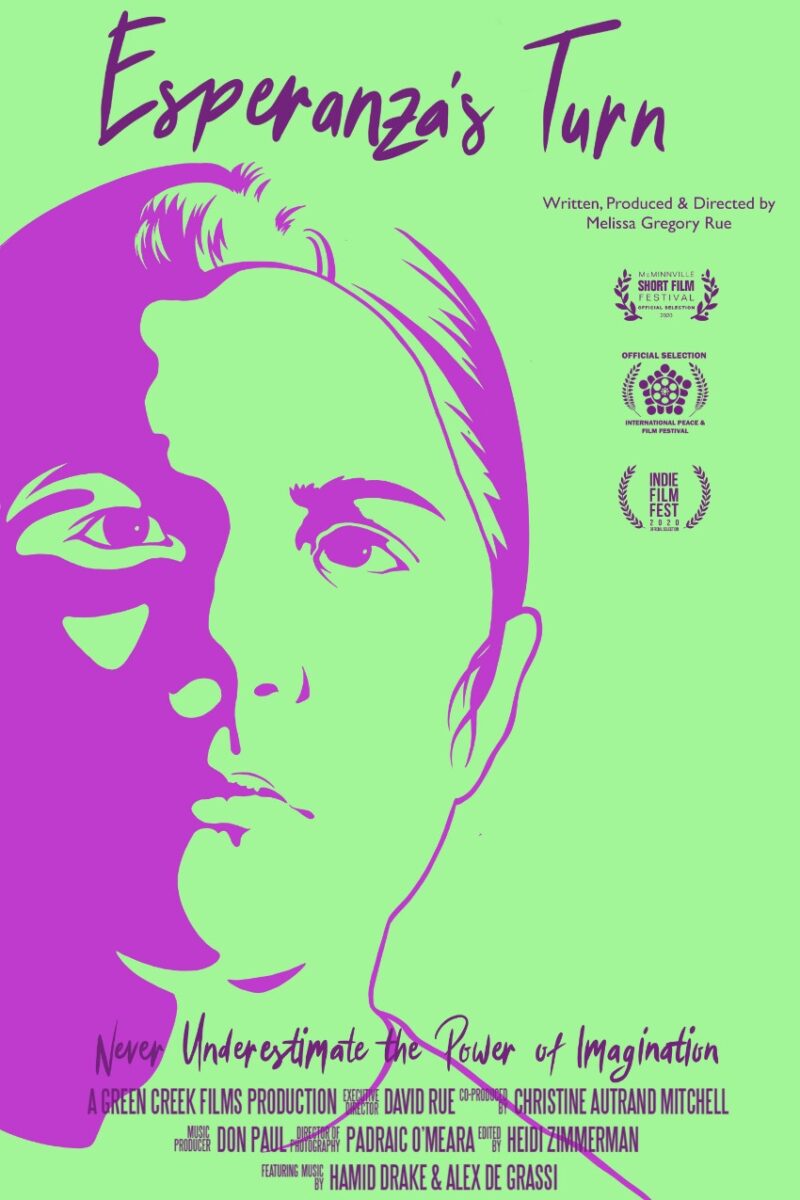
We also won the Rising Star Award for Dramatic Short Film at the Colorado Int’l Activism Film Festival (Denver), Silver Mention-Best Social Issues Film at Phoenix Monthly Film Festival (Ontario), Best Editing at iNDIE Film Festival (Phoenix), and Finalist at Toronto Film Magazine. In addition, Esperanza’s Turn as been an Official Selection at Louisville’s International Film Festival, Studio City Film Festival (Los Angeles), Paris/Los Angeles/New York/Tokyo Lift-Off Film Festivals, Portland Film Festival, Children’s Film Festival (Seattle), Cyrus International Film Festival (Toronto), The Short Film Filmmaker’s Showcase at Pinewood Studios (London), Las Cruces International Film Festival, The International Peace & Film Festival (Orlando), Dada Saheb Phalke Film Festival (India) and more.
What do you hope audiences take away from the film?
MR: Well first, I hope they recognize that immigrant children (and families) from Mexico and Central America are growing and harvesting the food that keeps them alive. It’s time our country showed these hard-working immigrants some respect instead of exploiting their labor and then demonizing them. Another take away is this: there is nothing more important right now than the power of imagination. Our ability to reverse the damage we have done to our planet and survive as a species hinges on our ability to use our imaginations to develop creative solutions. The same applies to our ability to solve complex problems and inequities in our world. Parents and teachers have a vital role to empower this up-and-coming generation to face the unprecedented challenges we have created.
How did you get into filmmaking?
MR: I loved acting as a kid, but I didn’t have many opportunities other than church musicals and yearly high school plays. I grew up in a male-dominated culture on a farm in Kentucky, and then went to Miami University (Ohio) to study theater, but ultimately switched my major to English Literature. I wanted to write and direct, but that seemed about as outlandish as becoming an astronaut. The women I knew did not become film directors, so it took me a long time to give myself permission to do that. Instead, I moved to Oregon in the early ’90s and earned my M.A. in English Literature at Portland State University, where I first taught college writing as a teaching assistant. In 2003 while I was teaching writing and literature full-time at Portland Community College, I started taking classes at the NW Film Center. For years I juggled both. It took me until 2011 to work my way through their certificate program. My first two films made it into some festivals and got good feedback. After that, I decided it was time to quit teaching and focus on filmmaking.
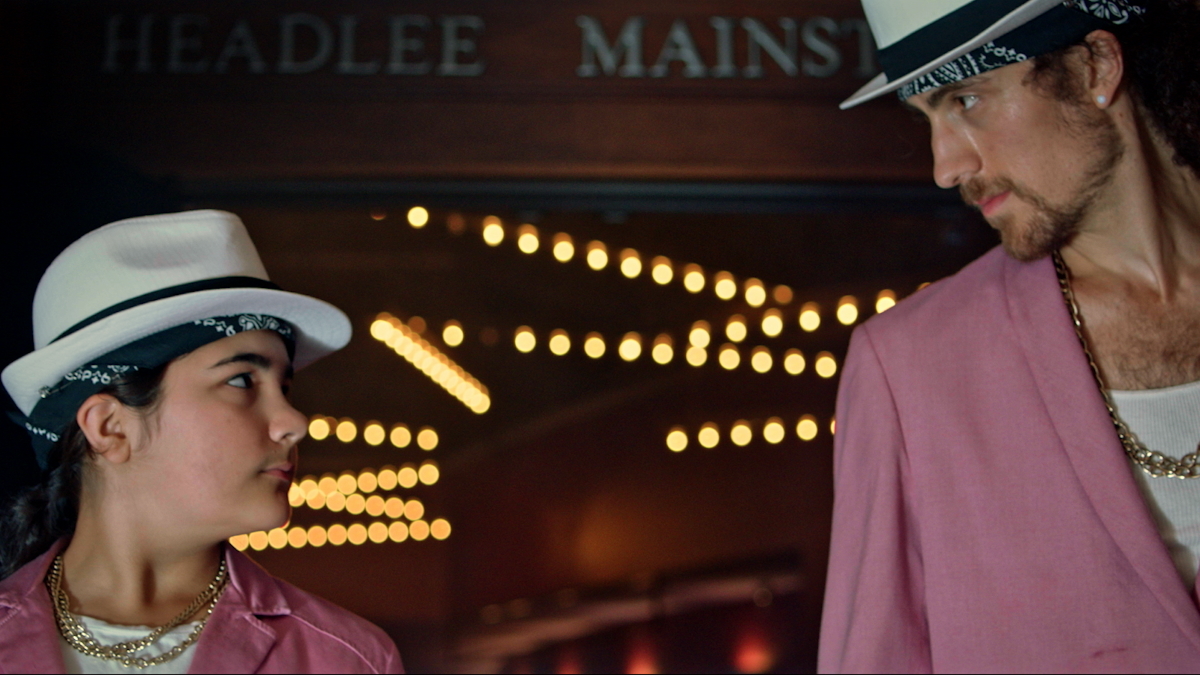
Any specific tips for others looking to create their own projects?
MR: Finding money to make films is not easy. If you don’t have the funds and can’t get private support, find people who are willing to donate their time and skills in trade.
Use contracts. They protect your workers and you. Set up an LLC and do not skip production insurance, it could ruin your life. Get liability waivers from everyone on set. Remember the most important thing is the story. Work with a writing group. Get feedback from non-filmmakers. Get feedback from filmmakers you trust and admire.
Get your ego out of the way. LISTEN to advice and use it to make your story stronger. Revise, revise, and revise again. Do not think about shooting until your readers are dying to see your film produced. If you can’t afford the expensive camera and finishing costs, come up with a story that lends itself well to a low budget look, and shoot it in an inventive way on your phone. Limitations sometimes lead to the most interesting work. Do make sure you get good quality sound.
What are you working on next?
MR: I’m in post-production on my first feature documentary. Live Out Loud follows three people experiencing homelessness who find healing and empowerment by learning to make films. I followed David, Sumiayya, and John over a year while they were taking a filmmaking class taught by artists in residence at a social service center in Portland, Oregon. Their projects were all different: stop-motion animation, narrative, and documentary. Homelessness is deeply stigmatized. That stigma can destroy a person’s self-esteem. Art, on the other hand, empowers. I guess that is a recurring theme in my work. It’s amazing to see how taking on this new identity as filmmakers changed them. My plan is to have screenings where we show their work alongside my feature. And my dream is to have them down front with me doing a Q & A.
Oregon transplant Melissa Rue writes, directs, and produces films and series that provide cross-cultural experiences to promote greater compassion in our world. Her films have screened at festivals around the U.S. In 2018, Melissa had the privilege of recording soundtracks for “Esperanza’s Turn” and her upcoming documentary, Live Out Loud, with Grammy-nominated guitarist Alex de Grassi and world-renowned percussionist, Hamid Drake. Honored saxophonist and educator, Kidd Jordan, and spoken word artist, Don Paul, also appear with Hamid and Alex on the soundtrack for Live Out Loud. Melissa is currently at work on a pilot for a series that is set in her birthplace, Kentucky. In addition to working on her own projects, she co-produces Interconnections, a documentary web series about people and programs making a positive impact on our society and environment. Before shifting her focus to filmmaking, Melissa taught writing and literature at Portland Community College for many years
Tell us what you think of the interview with Melissa Rue. What do you think of it? What ideas did you get? Do you have any suggestions? Or did it help you? Let’s have your comments below and/or on Facebook or Instagram! Or join me on Twitter.
Follow Melissa Rue on Social Media
Website
IMDb
Facebook
Twitter
Instagram
Vimeo
Jack Roper Joins Cast of Bruno Pischiutta’s Mega-Film Project, The Trilogy
British Actor Jack Roper joins Stephanie Tripp, Seven Grant, and Cristina Perez
The Exploding Boy by Monty Wolfe. The Micro-Budget Queer Coming Of Age Comedy
Monty Wolfe delivers an up-beat alternative to reboots, remakes, and sequels.
12 Year Old Actress, Sofia Carvalho: Emerges with a Bright Career Ahead
By Bruno Pischiutta

